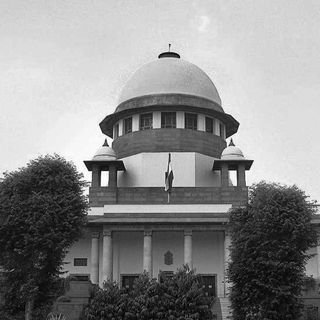The Madurai bench of the Madras High Court upheld the marriage of a man and a trans woman Monday, after they approached the court to complain about registration authorities who refused to acknowledge the trans woman as a bride under the Hindu Marriage Act of 1956.
Justice G R Swaminathan, while issuing a verdict in the case, referred to Article 14 of the Constitution of India, which ensures that all persons in India enjoy equal protection under the law.
The judgement reads, “Transgender persons fall within the expression ‘person’ and hence entitled to legal protection of laws in all spheres of State activity as enjoyed by any other citizen of this country,” Live Law reported. Justice Swaminathan said, “gender identity falls within the domain of her personal autonomy and involves her right to privacy and dignity,” and that state authorities have no business questioning the trans woman’s self determination of identity.
While ‘transgender’ has been categorized as a third gender and people identifying as such have been given the right to self-identification after a landmark Supreme Court ruling in 2014, cases where their self-identification has been upheld by judicial institutions are few and far between. By acknowledging the trans woman’s identity as a bride, Madras HC upheld the protections accorded by the constitution and showed that it respected her rights to self-identify under the law.
Another milestone reached by the Madras HC, which was lauded by gender rights activists as a move toward civil rights for all, is the court’s directive for the Tamil Nadu government to ban sex reassignment surgeries for intersex babies, Live Law reported. The initiative blossomed out of gender rights activist Gopi Shankar’s efforts, which involved sending a letter to the National Human Rights Commission that highlighted the high rates of forcible “corrective” surgery performed on babies who are born with genitalia considered ‘abnormal’ by parents and doctors. The complaint was then forwarded to the Ministry of Health, who defended the practice and said all surgeries were done by the consent of the parent or guardian of the child.
The court called the response “strange” and asserted that “consent of parent cannot be regarded as the consent of the child,” Live Law reported. The court deferred to WHO guidelines on intersex genital mutilation and stressed that surgery is a decision that can only be made by intersex persons themselves, when they are old enough to know their preferences.
“When a child is born it is usually endowed with male genitalia or female genitalia. But there are children who are born with a genitalia that belongs to neither category. They are known as intersex children. They must be given the time and space to find their true gender identity,” the judgment reads.
The judgement further acknowledged that, “Beyond the man-woman binary, there are as many as 58 gender variants.”




